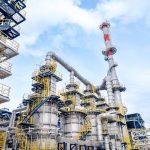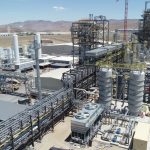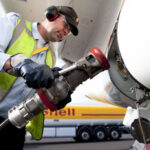SWISS and the Lufthansa Group have entered into a strategic collaboration with solar aviation fuel pioneer Synhelion, which will enable SWISS to become the first airline to use sun-to-liquid fuel. Synhelion has developed a key technology for producing sustainable aviation fuel using concentrated solar heat to manufacture syngas that can then be synthesised into kerosene using standard industrial processes. Last October, the company announced it had received funding worth €3.92 million ($4.3m) from the Energy Research Program of the German Federal Ministry for Economic Affairs and Energy, which will be used towards building the world’s first industrial plant for solar fuels in North Rhine-Westphalia, Germany. The facility will cover the entire process from concentrated sunlight to synthetic liquid fuel on an industrial scale, with the end products being solar kerosene and solar gasoline. SWISS is set to become the first customer for the solar kerosene in 2023 and under the collaboration will support the development of another commercial facility in Spain.
“Our team-up with Synhelion is founded on our shared vision to make carbon-neutral flying in regular flight operations possible through the use of solar fuel,” said SWISS CEO Dieter Vranckx. “In partnering with them, we are supporting Swiss innovation and are actively pursuing and promoting the development, the market introduction and the scaling-up of this highly promising technology for producing sustainable fuels.”
Together with the Lufthansa Group and sister airline Edelweiss, SWISS has been working with Synhelion on solar fuels since 2020. The airline said it would be substantially increasing its use of SAF in the next few years to help achieve its climate objectives, although it acknowledges that in view of the limited availability of biofuels, alternatives will be required.
“This is why we are actively supporting the development of solar fuels,” said Vranckx. “We want to be a pioneer in their use, so our involvement with Synhelion is a key element in our long-term sustainability strategy.”
Synhelion evolved from the Swiss Federal Institute of Technology (ETH Zurich) in 2016 as a clean energy company with an aim to decarbonise transportation. In 2019, it demonstrated the feasibility of its technology based on process heat from concentrated sunlight under real operating conditions in a small pilot plant with ETH Zurich. The following year, it tested a second prototype with artificial sunlight at the German Aerospace Centre’s (DLR) Synlight facility and in 2021 partnered with consulting and engineering company Wood on a test facility for the production of syngas, which was set up on DLR’s solar tower in Jülich, North Rhine-Westphalia, to demonstrate the technology on an industrial scale.
The project to build the industrial production plant at Brainergy Park Jülich is being carried out by Synhelion Germany, DLR and the Solar Institute Jülich of Aachen University of Applied Sciences. Synhelion Germany was formed last year following the acquisition of Heliokon, an expert in concentrated solar power founded in 2016 and a spin-off from DLR. In addition to the German government funding, Synhelion raised a further 16 million Swiss francs ($17.4m) in a Series B funding round last November. A paper by members of Synhelion, ‘Drop-in fuels from sunlight and air’, was published in the journal Nature the same month.
“We believe in a globalised world connected by climate-friendly mobility,” commented Dr Philipp Furler, Synhelion’s co-founder and CEO. “Our next-generation carbon-neutral solar kerosene is an economically and ecologically viable substitute for fossil fuels. The commitment of SWISS and the Lufthansa Group underlines the aviation sector’s keen interest in our solar fuel.”
Top photo: The Very High Concentration Solar Tower of IMDEA Energy was built as part of the EU’s Horizon 2020 ‘Sun-to-Liquid’ project. It is located in Móstoles, a suburb of Madrid, Spain. Synhelion has been renting this facility, featuring a 1,000m2 solar field, to develop and test its solar fuel technology on a medium scale. (source: Synhelion)













More News & Features
SAF One announces new investment and technology partners for Middle East SAF project
New studies confirm minor flight re-routing to avoid contrails would have major climate benefits
New initiative formed to accelerate SAF adoption and production in the Pacific Northwest
EcoCeres opens new Malaysia production facility as SAF ambition in Asia scales up
Aviation, shipping and fuel leaders convene in Rotterdam to accelerate sustainable fuels scale-up
EU SAF mandates will have to be revised, predicts French oil chief